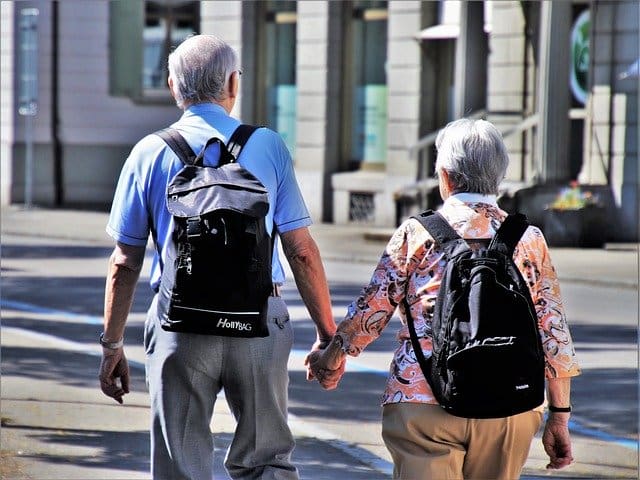7 Common Mistakes Senior Travels Should Avoid

7 Common Mistakes Seniors Make When Traveling

Retirement is often a mixed bay for seniors. The hits are the freedom they enjoy without the care of a work schedule and they can make travel plans at will. The misses are the fact that the body cannot keep pace it once did, and sometimes forgetfulness or resistance to crowds and commotion plays a role in setting the agenda for safe and enjoyable travel. While there are mistakes seniors make when they travel, most can be avoided with a bit of preplanning. Here’s a list of 7 common mistakes seniors make when traveling.
False sense of age and energy
Seniors may still think their bodies match their enthusiasm for travel. Unfortunately, it doesn’t work that way. They may think they can take off touring right from the time they land in a new place and often a new time zone. Often, they have to contend with jet lag, change of times, change in climate and a new language or accent. If they don’t slow down and take activities in measured steps, they will probably end up not enjoying their stay because their bodies can’t keep up.
Fail to keep medicines nearby
Medicines are an important part of seniors travel kit. Many seniors forget to keep their medicines in their carryon handbags. They may mistakenly lock them in checked-in-luggage and risk the change of them being misdirected or not available when needed. Time changes can cause severe health imbalance, they should calculate in advance the adjusted timing of their medication. Keeping their medicines close at hand while traveling is essential. Seniors should also plan for mishaps and travel with a copy of their medication prescriptions.
Careless about trying local foods
Seniors can get carried away by the various local foods on offer. It is quite tempting to try new foods without thinking whether it would affect their constitution or interactions with medications. They will likely be eating at new times and with spices and seasoning they may not be accustomed to. They will also be dining at restaurants more often where the food is generally more salted and spiced than they are accustomed to at home. Seniors should always travel with digestive medications. They may also contract an allergy which they would not encounter at home which can spoil their travel itinerary.
Impatience at pedestrian crossings
One of the most difficult tasks for seniors when traveling is simply crossing the road, especially if driving is on the opposite side of the road than their home country or if they are not familiar with the placement of the traffic signals. They are also not used to the time allowed for pedestrian crossings. They may not be fast enough to cross before the signal turns red. Seniors make the mistake of not to studying the pedestrian crossing system prevalent in the new place. If they don’t, they can be hauled up or fined for traffic violations but more importantly, they could get injured while crossing the road.
Forgetfulness and disorientation
Seniors exhibit different degrees of forgetfulness. If they are forgetful they can forget to get enough medicines and may run out of medicines during their trip. They should travel with their prescriptions. It’s also important to pick up a copy of the hotel’s card at the front desk in case they forget the exact address and need to ask for directions or give a taxi driver instructions. If they are changing locations frequently, it’s a good idea to snap a picture of the hotel room door in case you temporarily forget the room number. If seniors store valuables in the room safe, put an essential item with it (like one shoe) so they can’t forget and leave their valuables behind when checking out.
Unprotected against infections
Seniors can miss reading the health travel advisories that are applicable to specific countries. For instance, they may need to take certain vaccinations which are mandatory for travel to certain countries. If the seniors are Americans then they can travel to many countries without the requirement of a visa and it is possible they may forget to protect themselves with the proper vaccinations. Seniors can come to grief if they don’t show enough care to immunize themselves adequately. It’s also important for seniors to check the expiration of their passport in advance as most countries require that it remains active for at least 6 months from the date of travel.
Embarrassment at security checks
Most seniors have some type of health issue. They could have a pacemaker or commonly implanted orthopedic materials such as stainless steel, cobalt chrome or titanium joint replacements. These can cause problems at security checks in some airports. Doctors can sometimes provide a card that identifies the metal implant, but some airports to not use these as a guide. Seniors should anticipate a possible slow down and extra screening when they go through security and be prepared to make the best of the screening process.
The above are some of the common mistakes seniors make when they embark on a journey. Of course, their friends and family can always chip in and smooth out the travel preparations so that they can enjoy their trip without mishap.




